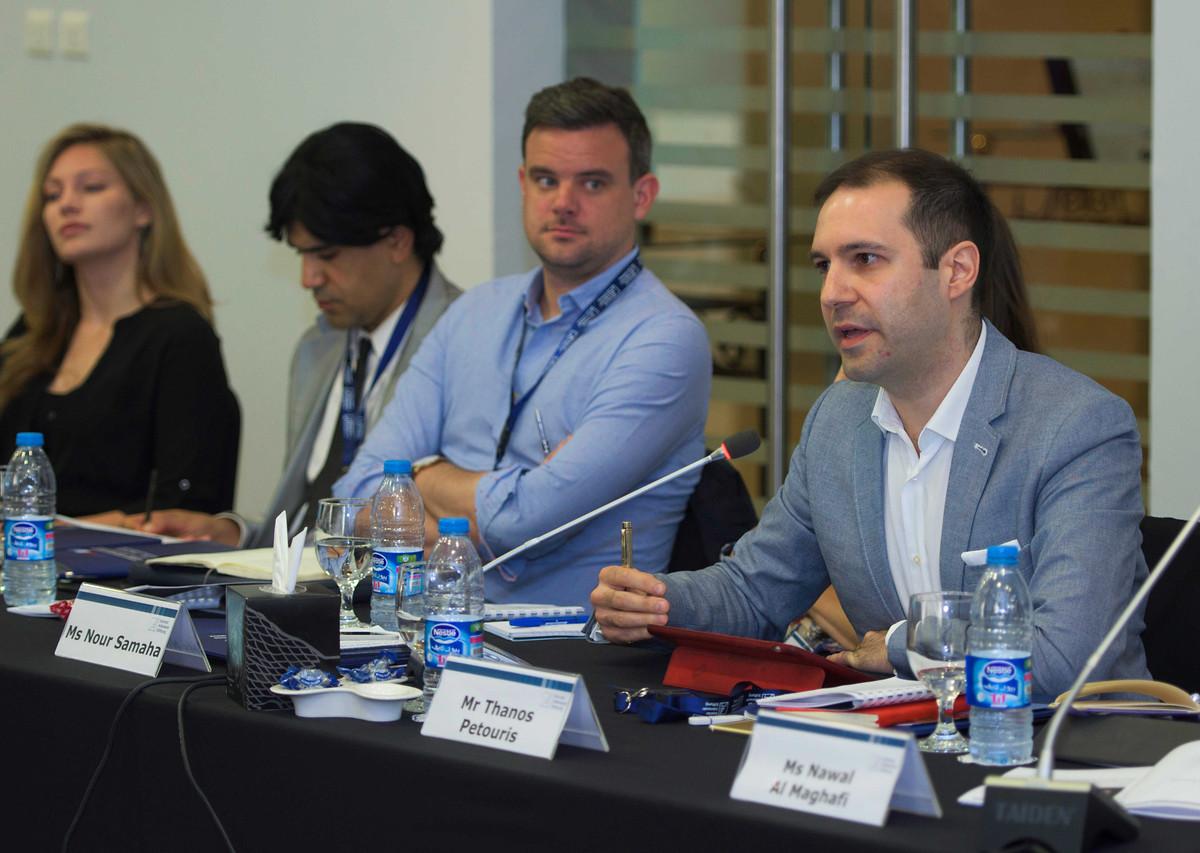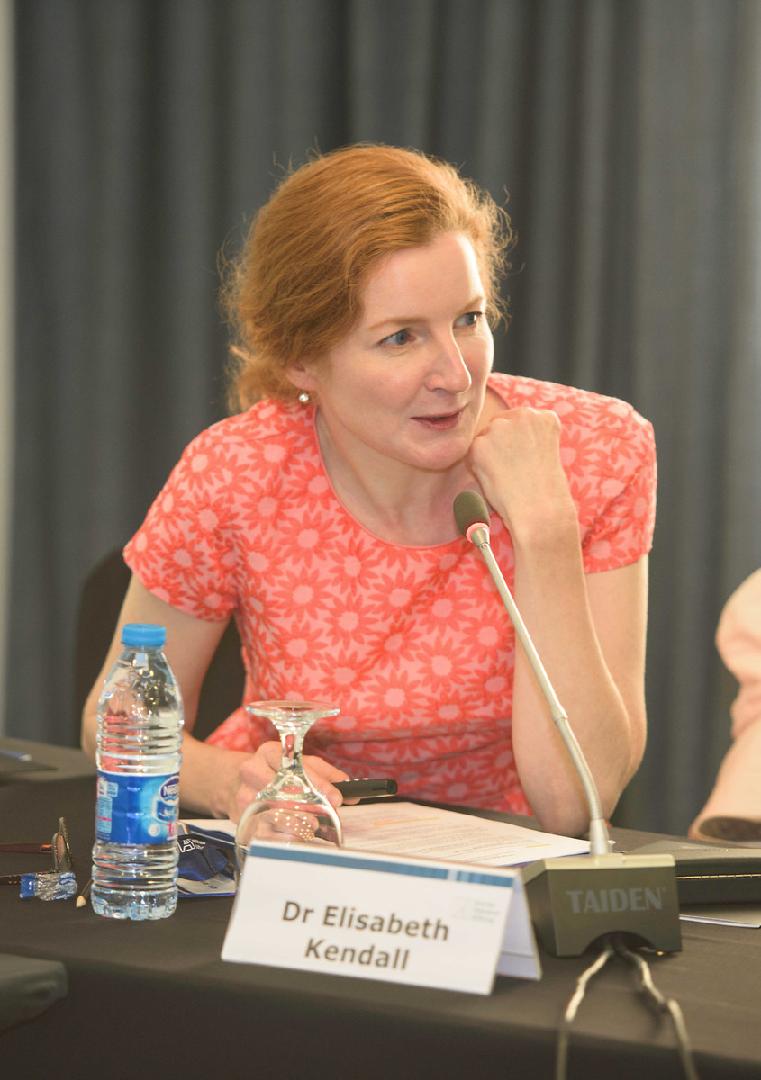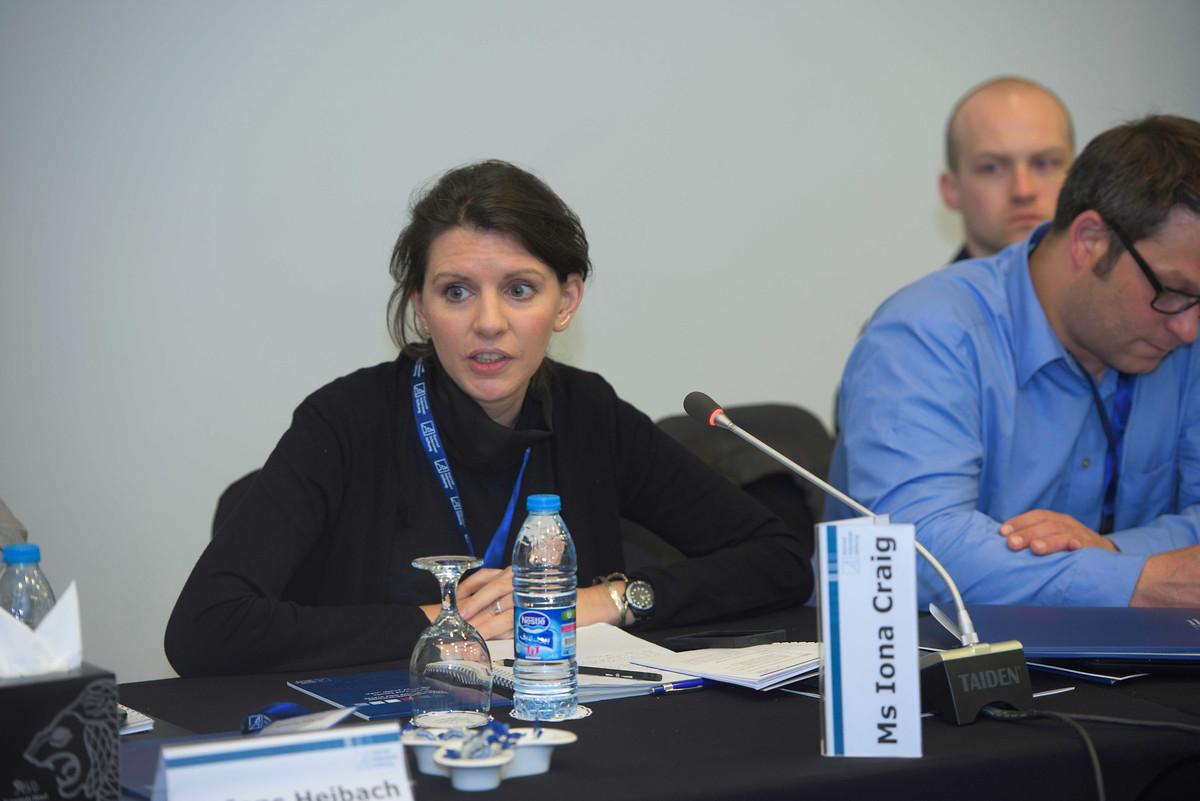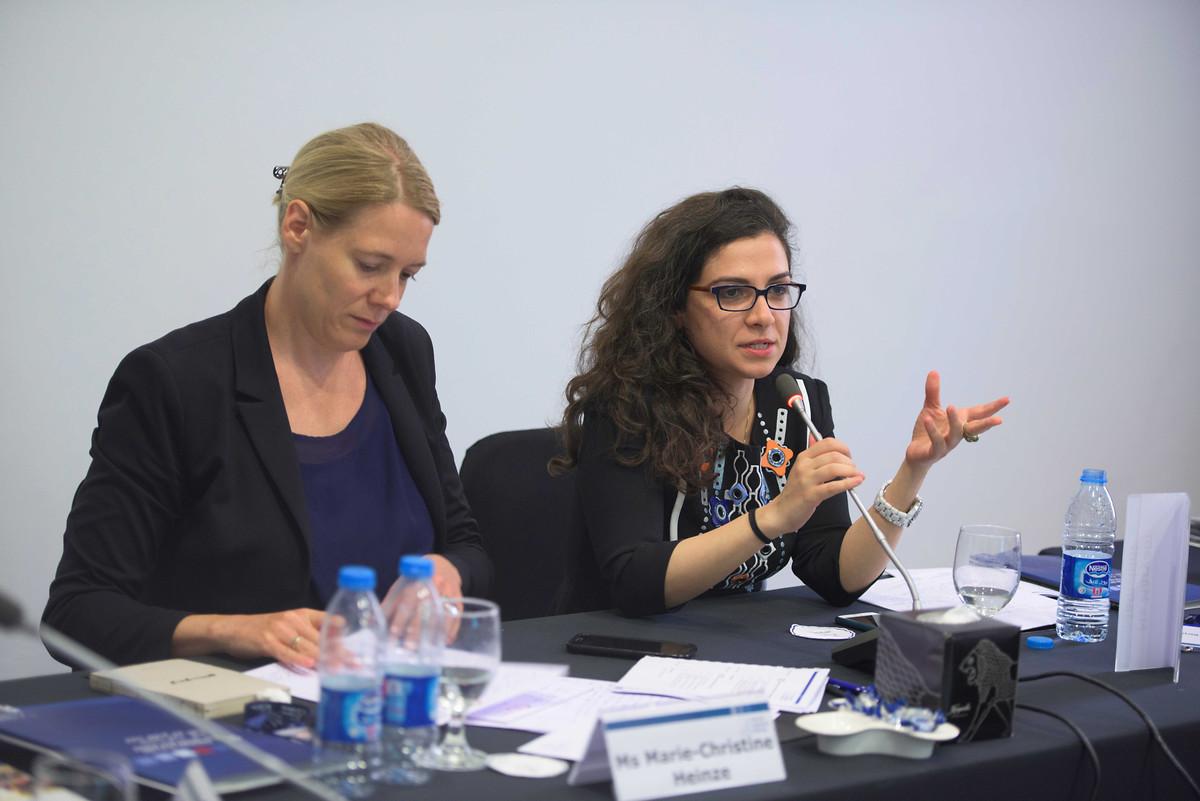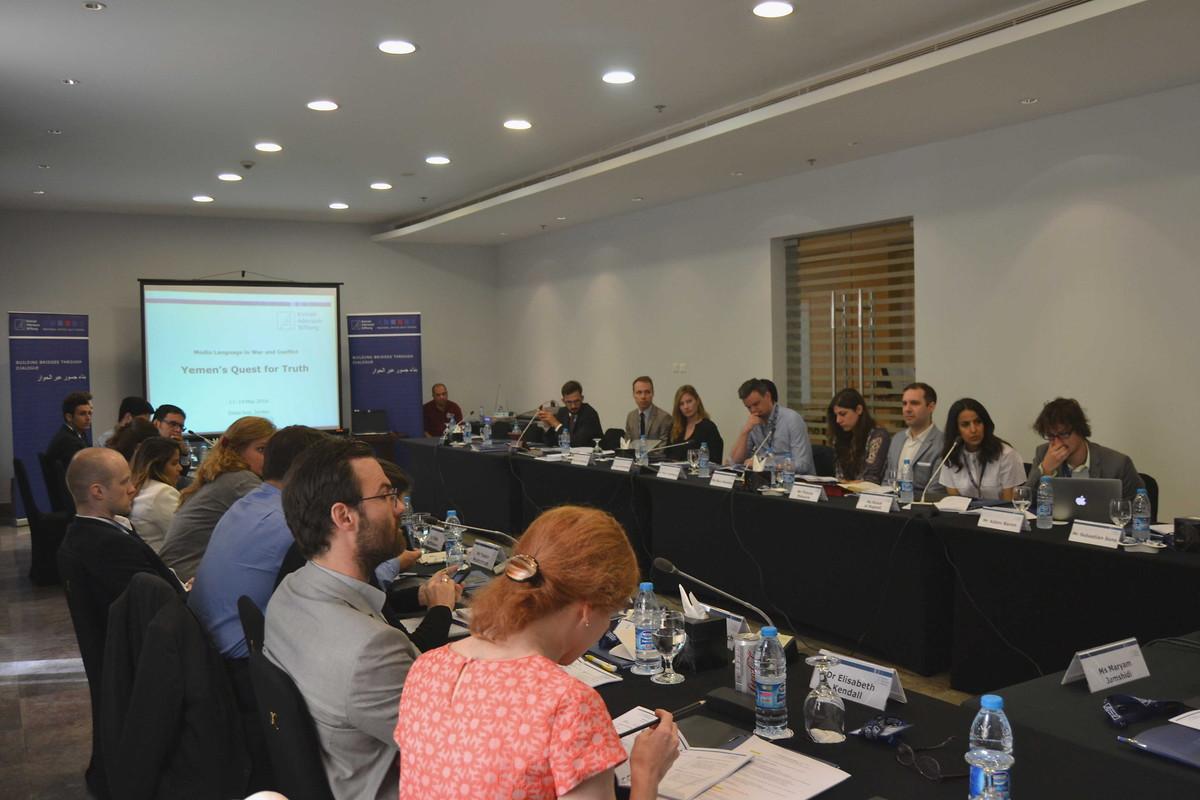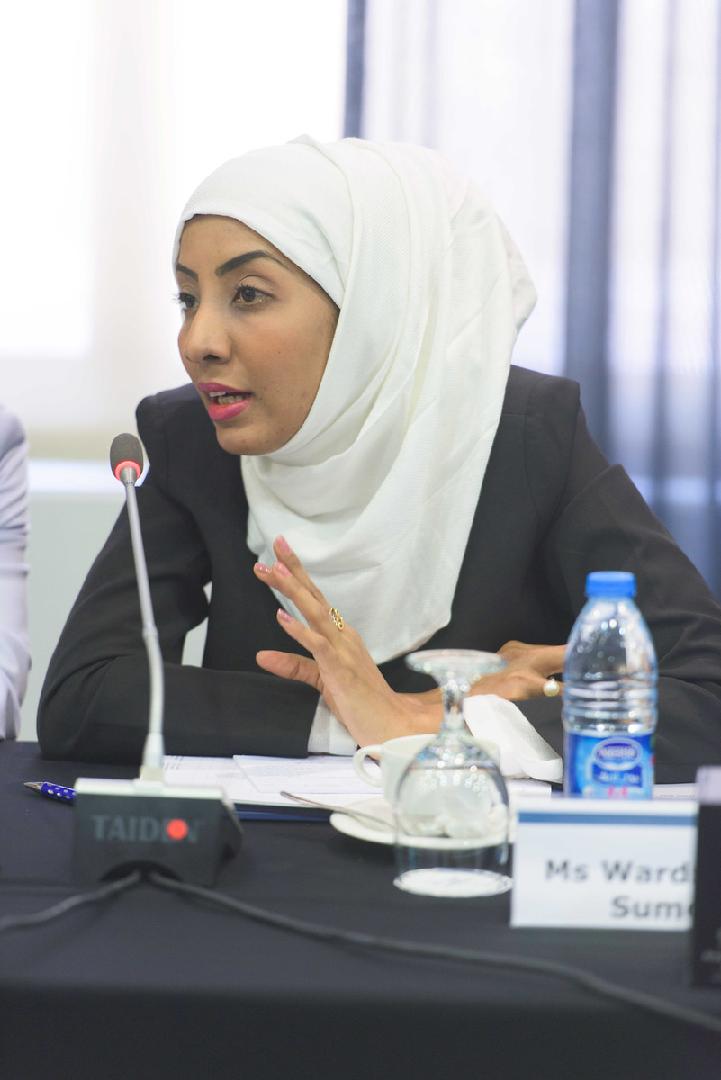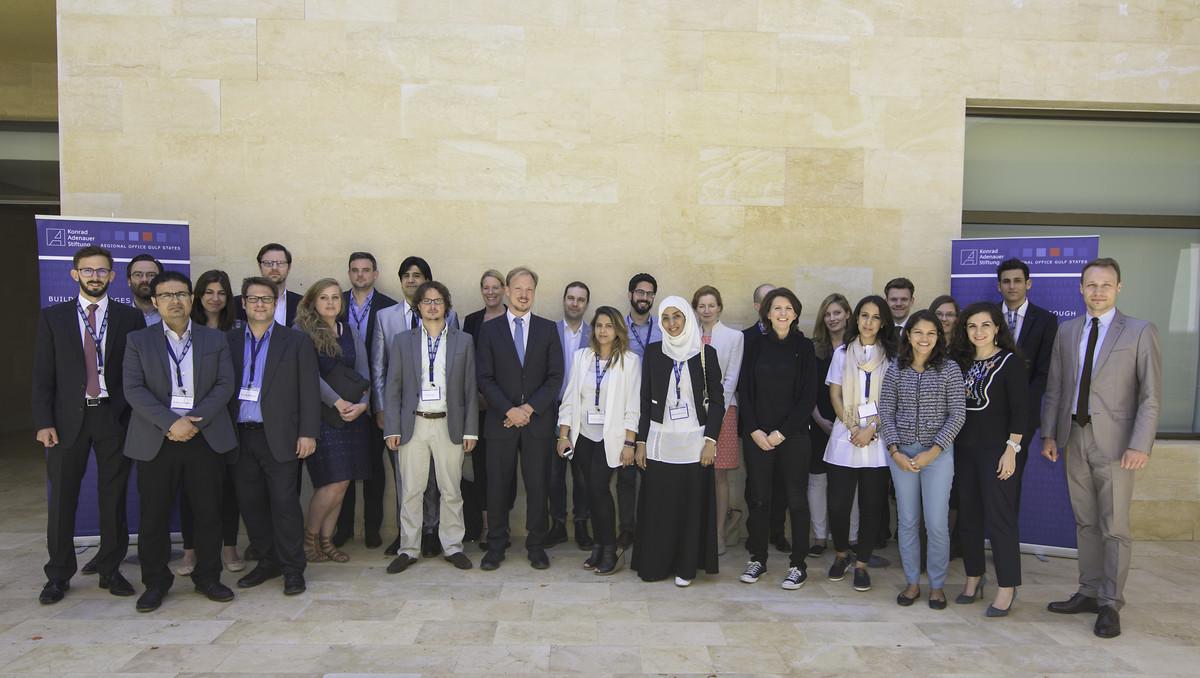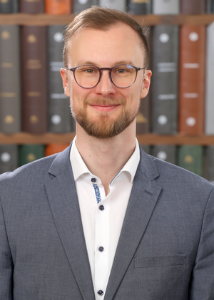The results of the workshop were published by online magazine Muftah and can be read via the following links:
http://muftah.org/category/war-and-the-media-in-yemen-part-1/
http://muftah.org/category/war-and-the-media-in-yemen-part-2/
Since the failure of the peaceful transformation process in autumn 2014, many journalists had to flee Yemen and go into exile abroad. Those who have stayed in the country face increasing pressure to follow “narratives of truth” propagated by the different conflict parties. Media agencies in Iran and Saudi Arabia take up these contrary lines of discourse, enriching them with their own national ideologies. For international journalists, gaining access to reliable, objective information poses an ever increasing challenge. From May 17th to May 19th, the Regional Office Gulf States invited journalists from Yemen, other Arab countries, Europe and the USA to come together for a two-day workshop. In addition, journalists from Sana’a and Aden, who weren’t able to leave the country, were connected via video conference. The event aimed at discussing and deconstructing local, regional and international conflict narratives and to analyse them in the context of partisan interests in Yemen.
In his keynote speech, international media expert and former war journalist Jan Keulen provided an overview of the challenges of reporting about the Yemeni conflict. Based on findings by media researcher Gadi Wolfsfeld, he explained that conflict coverage is generally structured along three questions:
- How did we cover this conflict in the past?
- What is the most newsworthy part of the conflict?
- Who are the “good guys”?
After these introductory words, the first part of the workshop traced back the development of the media landscape in Yemen. Before the escalation of the conflict, Yemeni citizen were enjoying greater freedom of expression than many other states in the Arab world. Despite the fact that journalists were confronted with great challenges in their everyday work, media coverage was characterised by plurality and aimed at making a positive contribution to the country’s development. However, with the Houthi rebels’ rise to power the new regime took over both the state-owned Yemeni television and the Yemeni news agency in Sana‘a. Meanwhile, the former government is broadcasting from exile in Saudi Arabia. At the same time, terrorist organisations such as Al Qaeda and the so-called “Islamic State” are introducing their own narratives into the discourse. Local journalists tend to follow one of these many lines of reporting, thereby legitimising the various parties. In short, war in Yemen is not only fought with weapons, but also with words and the media, is becoming a battleground in and of itself.
The debate between Houthi and Hadi supporters is not just limited to traditional means of communication, but also gained momentum on social media, thereby reaching the broader civil society. In the aftermath of the Saudi Arabian intervention 2015, digital spaces of solidarity were forged on twitter, based on the political, religious and cultural identification with one party and the defamation of the other. This is but one example of how analogue and digital media is dominating public discourse and deepening the divides within Yemeni society. Journalists are no longer fulfilling their mandate to provide independent, objective information; to quote Jan Keulen: “truth becomes the first victim of war.”
In the second part of the workshop, the participants examined regional media coverage of the Yemeni conflict, finding that the challenges are not confined solely to Yemen’s media landscape. Iranian media focus their reporting on the presentation of the Shia minority in Yemen as victims of the military coalition led by Saudi Arabia. Consequently, Iran’s involvement in the conflict is understood as a humanitarian intervention, and Iranian soldiers are glorified as “saviours” of the oppressed. Saudi Arabian news agencies defend the Kingdom’s intervention with political and religious arguments: On the one hand, it is considered a legitimate means to preserve the national interest, on the other hand it is regarded a “sacred duty” to protect their Sunni brothers from the Shia militias. Moreover, both states are exploiting other regional media for their national propaganda: Already before the escalation of the conflict, Iran and Saudi Arabia had been propagating their diverging interests with regards to the Syrian war in Lebanese newspapers and television channels. Since the beginning of the Saudi-Arabian intervention, Hezbollah is making even stronger use of Lebanese publications in order to condemn the Saudi government. It is therefore necessary to understand current regional press coverage of the Yemeni conflict against the background of ongoing rivalries inside the region.
The third workshop section, entitled Lost in Translation, analysed international press coverage of the Yemeni conflict. Compared to other conflicts, as for example in Syria, international media interest in the Yemeni civil war is relatively scarce. Jan Keulen suggested that this might be due to the complex and multidimensional nature of the dispute, which is difficult to sell to an international audience. Second, if the conflict is covered, it is being presented as a proxy war between Saudi-Arabia and Iran. Such a simplified representation should be critically questioned: The war in Yemen began as a local conflict, which was then instrumentalised by other countries in the region. Iranian influence over the Houthi-rebels is by far more limited than Iranian influence over Hezbollah, for example.
The last part of the workshop was reserved for an exchange of ideas between a representative of UNESCO Communication and Information Sector Office Gulf Cluster and the workshop participants. Already in February, UNESCO had organised a conference on the possibility of quality journalistic work given the difficult living and working conditions in Yemen, the results of which were now presented to the audience. The majority of attendees agreed that security risks in Yemen pose great challenges to their everyday life. In addition, there are hardly any funding opportunities available for neutral, objective reporting. Organisations such as the Konrad-Adenauer-Stiftung are essential for the creation of transnational networks of support between journalists of different news agencies. The workshop in Amman was seen as one step further ahead towards the creation of such networks.
This was already the third of a series of events focusing on media, democracy and conflict in Yemen organized by the Konrad-Adenauer-Stiftung since 2014.



